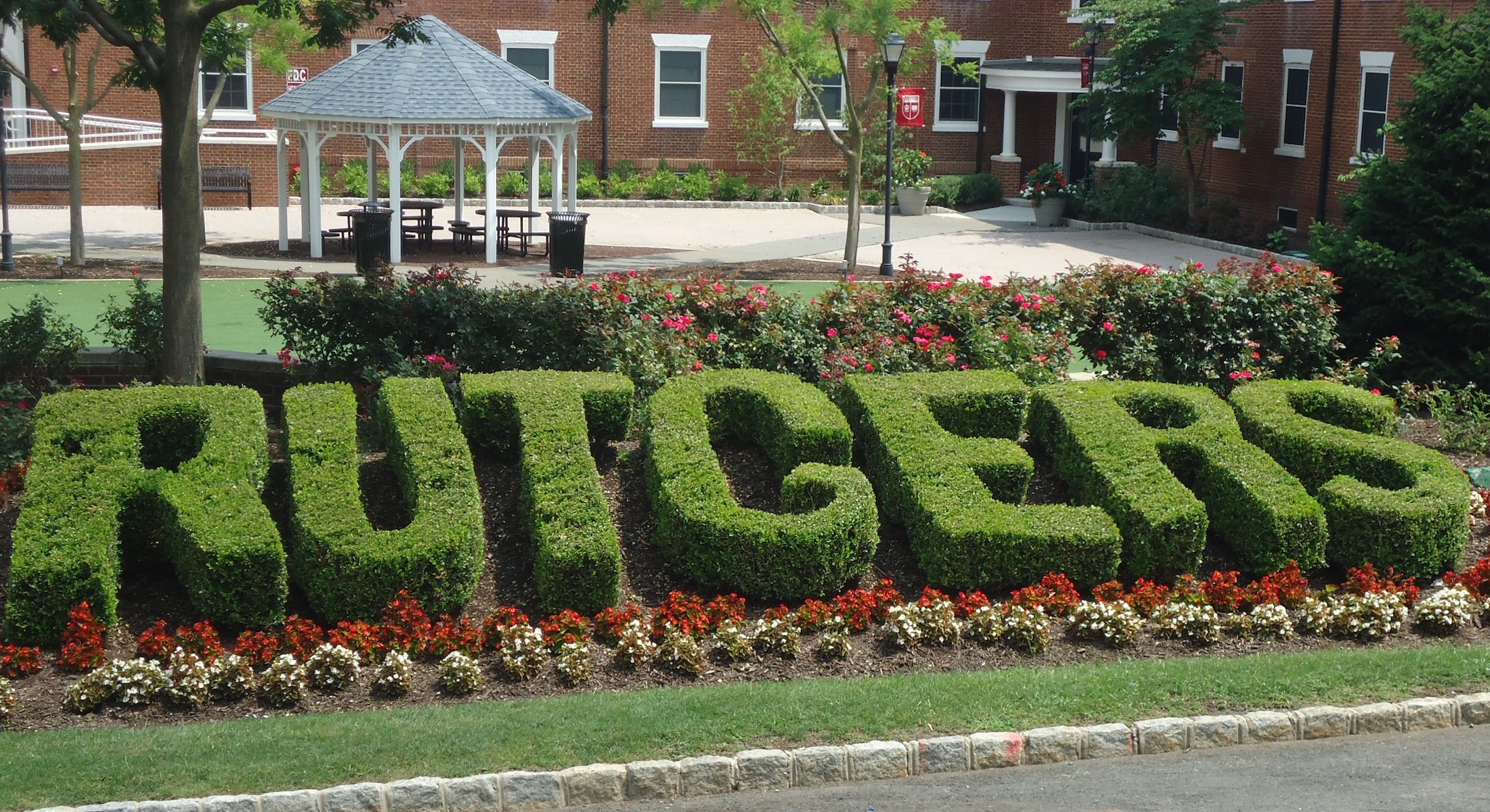Rutgers Jewish students, faculty decry ‘intimidating’ environment ahead of congressional hearing
The letters from Jewish students come a day before the university president is slated to testify at a congressional hearing on antisemitism

A hedge outside Rutgers University in New Brunswick, New Jersey, July 30, 2016. (Tomwsulcer via Creative Commons)
WASHINGTON (JTA) — One day before their university’s president was due to appear before Congress, hundreds of Jewish Rutgers University staff and students decried what they described as an intimidating campus environment for Jews.
“The entire university community has suffered through the disruption of normal university operations and an often chaotic and intimidating environment on our campuses,” said one letter released Wednesday by Rutgers Jewish Faculty, Administrators, and Staff, with 208 signatures.
A separate letter from close to 160 Jewish students at New Jersey’s flagship state university, also released Wednesday, referred to allegations that national anti-Israel groups funded and organized the protests against Israel’s war with Hamas.
“Student groups connected to national organizations quickly mobilized in support of terror, conveying to us that we would not be safe and welcome at the university many of us called home,” it said. The letter called for enforcement of the university’s code of conduct.
The letters from Jewish staff described 15 incidents and patterns of what it said were antisemitic actions, including “the sustained disruption of campus events”, “a death threat against Israeli students” and “a Jewish student whose likeness was used on anti-Israel posters without her permission.”
The letters were released a day before Jonathan Holloway, Rutgers’ president, appears before a congressional hearing on campus antisemitism on his campus. Hearings last year led to the resignations of the presidents of Harvard and the University of Pennsylvania, and Republicans on the committee say they hope to effect more resignations.
A protest encampment timed to the testimony of Columbia University’s president last month kicked off a national movement of controversial student demonstrations, some of which ended in arrest and some of which were dismantled following agreements between the administration and protesters. Rutgers protesters struck a deal with their administration that included steps to make Palestinian students feel welcome and a pledge to discuss divestment from Israel.
The letter from the students said Holloway deserved credit for resisting demands to cut ties with Tel Aviv University. “We are thankful that President Holloway has justly defended and reaffirmed our relationship with Tel Aviv University,” it said.
The letter from staff and faculty faulted Holloway for agreeing to some of the demands of the protesters to end an encampment, including the divestment discussion.
“The administration’s decision to accede to the demands of the encampment protesters undermines the principles of shared governance, and it elevates the voices of a radical few above those of the more reasonable whole,” it said.
Both letters indicated that they understood university leaders were sympathetic to Jews’ concerns, but did not do enough.
“While some university leaders have displayed good intentions, their words and deeds have been incommensurate with the magnitude of the problem,” said the letter from the staffers.
Two New Jersey Democrats in Congress, Reps. Josh Gottheimer and Donald Norcross, earlier this month wrote to Holloway expressing concern “that Rutgers appears to have incentivized people to act in a lawless and threatening manner by appeasing the demands of violent and hateful agitators while ignoring an analogous set of requests made peacefully to the University.”
The Department of Education last December opened an investigation into allegations of harassment of Jewish and Israeli students at Rutgers following the Oct. 7 launch of the Israel-Hamas war.
This article originally appeared on JTA.org.
A message from our Publisher & CEO Rachel Fishman Feddersen

I hope you appreciated this article. Before you go, I’d like to ask you to please support the Forward’s award-winning, nonprofit journalism so that we can be prepared for whatever news 2025 brings.
At a time when other newsrooms are closing or cutting back, the Forward has removed its paywall and invested additional resources to report on the ground from Israel and around the U.S. on the impact of the war, rising antisemitism and polarized discourse.
Readers like you make it all possible. Support our work by becoming a Forward Member and connect with our journalism and your community.
— Rachel Fishman Feddersen, Publisher and CEO

























